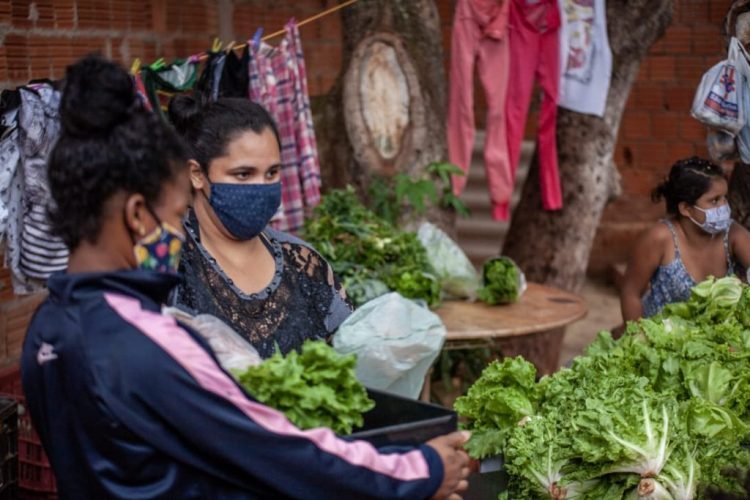The Latin American region advances in tools for better planning of public budgets but warns of the setback that has occurred due to the COVID crisis and the need to strengthen efforts on gender issues.

Fotos Públicas: Filipe Augusto Peres
The public budget is more than a simple accounting record of income and expenses. It is an instrument of fiscal policy that reflects how a government is financing the exercise of its functions and how it allocates resources for the provision of public goods and services to society. And for this reason, in recent years, both in Europe and in Latin America, the results-based budget has begun to be incorporated as a mechanism to improve the efficiency and effectiveness of public sector actions. Furthermore, public budgets are not gender neutral because they have a differentiated impact on women and men due to unequal access to economic, political, social and cultural opportunities within a society.
That is why for the European Union, “it is essential to work with central and sub-national governments in the region so that gender policies are able to budget for change programs that allow the implementation of the equal opportunities agenda in practice,” as Luca Pierantoni, head of the Cooperation Section of the European Union in Argentina, pointed out in the course of the regional Seminar on Budgeting by results with a gender perspective in Latin America, organised by the European Union Programme EUROsociAL+ and the Ministry of Economy of Argentina.
During the seminar, the results and experiences developed by the administrations of Brazil, Argentina and SECOSEFIN, the Secretariat of the Council of Ministers of Finance or Finance of Central America, Panama and the Dominican Republic, and the Secretariat of Finances of the State of Guanajuato of Mexico, with the support of the European Union programme.
Analía Sánchez Zolezzi, deputy director of the National Budget Office of the Ministry of Economy of Argentina has highlighted how they have managed to identify and analyse the spending for gender policies in the different phases of the budget cycle, and this has been reflected in the National Budget 2021. For this, the intersectoral work of the Chief of Ministers, the Ministry of Women and the Ministry of the Economy has been fundamental.
“The budget is a key tool not only to assess how much public spending is allocated to closing gender gaps, but it is also a tool to prioritise public policies and the budget with a gender approach, allowing this investment to be made visible,” he says.
As explained by Roberto García López, coordinator of the IDB Results-Based Budgeting Network and one of the main drivers of this tool in the region, there has been a decline in Budgets for Results due to COVID effect because “in many countries, both in Europe as in Latin America, the emergency has resulted in a highly political approach to spending and they have not been able to measure results”. In his opinion “we are undergoing the scissor effect since in 2021 we will have less income and more expenses and this should be an opportunity to advance in Budgeting for Results to have more impact on the quality of life of citizens, but there will be political pressure to establish priorities due to the pandemic and these priorities “are not always evaluated” and therefore it is necessary “a greater control from civil society, the private sector and academia”.
The seminar also highlighted the importance of working with subnational governments and presented the experience of the State of Guanajuato, a benchmark in Public Finance administration, which has already achieved the first achievements through the incorporation of the results methodology and the gender approach in its new budget law
For his part, José Recinos, technical advisor to the Executive Secretariat of COSEFIN has explained the case of the Central American region and the actions that have been developed such as the diagnosis of the progress in the countries on Budgeting for Results with a Gender Approach and construction of a methodology for its formulation. In the second phase of collaboration with EUROsociAL+, the gender approach will be incorporated into the results methodology and these designs will be implemented in the pilot programme being applied in Costa Rica.
In the case of Brazil, the complexity of working with a great heterogeneity of States and their uneven progress in terms of PPR has been highlighted. At the moment, a diagnosis of the situation is being developed and a selection of pilot States will be made for the implementation of the first PPRG measures.
Finally, Sonia González, coordinator of the EUROsociAL+ Programme Governance Area, closed the workshop by pointing out the inevitability of decisively advancing the budget with a gender perspective, not only for a criterion of social justice, but also for the associated economic efficiency derived from generating a more inclusive society in terms of gender.



